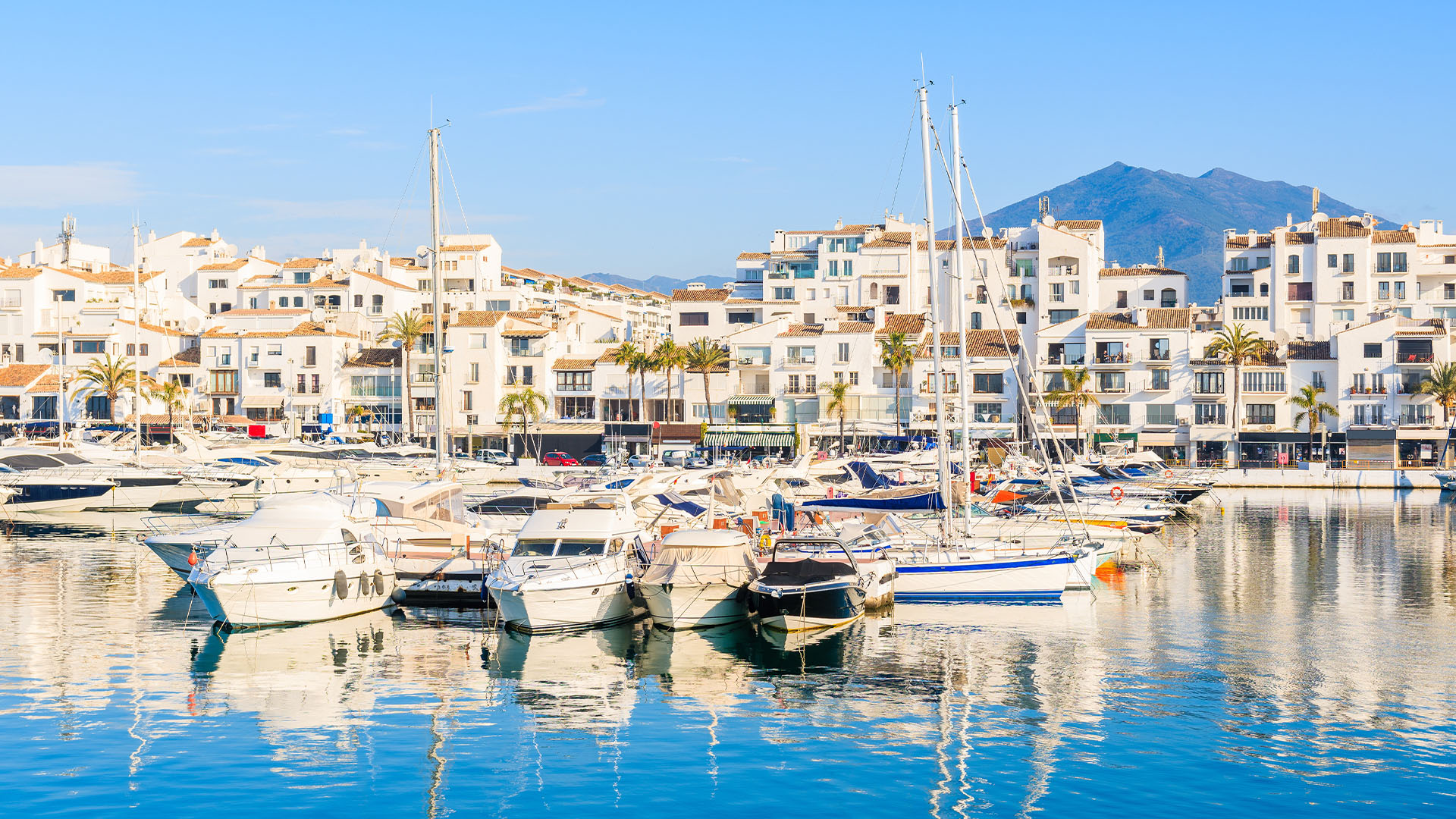 Credit: Adobe Stock
Credit: Adobe StockMarket momentum and investment realities in Spanish luxury hospitality
Key trends shaping the market, from prime locations and operational challenges to the impact of ESG and digital innovation
April 10, 2025Real Estate
Written by Jorge Aguinaga
Luxury hospitality in Spain is undergoing a remarkable transformation. With growing international demand, premium hotels are attracting significant investment, positioning Spain as a key market for high-end tourism.
However, while the potential is undeniable, navigating this evolving landscape requires a deep understanding of market trends, operational efficiency, and strategic investments.
At the recent GRI Luxury Hospitality Meeting, industry leaders gathered to discuss what is shaping the sector and how stakeholders can capitalise on emerging opportunities.
As travellers increasingly seek authenticity and exclusivity, investors must determine whether traditional luxury models remain effective or require adaptation.
"Capital is still flowing into traditional hotspots, but investors should look beyond the obvious," advised a participant from a world-renowned hotel group. New high-end projects in lesser-known regions may offer higher margins and differentiation, but only if executed with careful market analysis.

Efficiency and quality must coexist, requiring smarter workforce strategies and innovative service models to ensure both profitability and guest satisfaction.
One critical factor often overlooked is the role of strategic partnerships in fostering innovation and ensuring long-term stability. Market leaders emphasised the importance of collaboration in an ecosystem that demands agility.
With eco-conscious travellers on the rise, industry leaders stressed that integrating ESG considerations into development and operations is essential for long-term success. Consequently, green certifications, carbon footprint reduction, and responsible sourcing are becoming priorities for luxury hospitality brands.
Market leaders reiterated that personalisation, authenticity, and service excellence are the key differentiators in luxury hospitality.
Despite economic uncertainties, investment in this sector remains steady, supported by data indicating that high-end properties offer stability and long-term profitability.

With expectations rising, the industry must maintain impeccable service levels without compromising profitability, so how can hospitality brands maintain exclusivity while optimising costs?
Workforce management, technological innovation, and strategic partnerships were identified as solutions, with attendees agreeing that digitalisation and data-driven insights are increasingly essential for refining operational efficiencies.
The key question is therefore: what's driving this cautious approach?
It was observed that while transactions are occurring, many assets have yet to be officially integrated into global portfolios, returning to the idea of how brand positioning, operational agreements, and capital allocation strategies play such crucial roles in the final stages of acquisition.
Given this scenario, investors must carefully assess the strategic advantages of branding versus independent operation.
Exclusive to GRI Club Members - watch the full meeting on the GRI Media Centre.
Luxury hospitality in Spain is undergoing a remarkable transformation. With growing international demand, premium hotels are attracting significant investment, positioning Spain as a key market for high-end tourism.
However, while the potential is undeniable, navigating this evolving landscape requires a deep understanding of market trends, operational efficiency, and strategic investments.
At the recent GRI Luxury Hospitality Meeting, industry leaders gathered to discuss what is shaping the sector and how stakeholders can capitalise on emerging opportunities.
Investment remains strong, but where are the opportunities?
During the discussions, real estate leaders emphasised that Spain’s luxury market remains a secure investment, supported by strong demand and stable pricing. The question is not whether to invest, but where and how.As travellers increasingly seek authenticity and exclusivity, investors must determine whether traditional luxury models remain effective or require adaptation.
The battle for prime destinations
While established premium regions such as Madrid, Barcelona, and the Balearic Islands continue to dominate, participants debated whether emerging destinations could yield higher returns."Capital is still flowing into traditional hotspots, but investors should look beyond the obvious," advised a participant from a world-renowned hotel group. New high-end projects in lesser-known regions may offer higher margins and differentiation, but only if executed with careful market analysis.

Market leaders reiterated that personalisation, authenticity, and service excellence are the key differentiators in luxury hospitality (Adobe Stock)
Operational challenges and excellence
Despite strong investment interest, luxury hotels face significant operational challenges as labour shortages, rising costs, and the demand for impeccable service are all increasing the level of pressure on profitability and brand reputation.Efficiency and quality must coexist, requiring smarter workforce strategies and innovative service models to ensure both profitability and guest satisfaction.
Finding the right balance
As Spain’s luxury hospitality sector evolves, stakeholders must strike a balance between investment, location, and operational efficiency. Discussions at the event made it clear that while the market is still promising, future success will depend on strategic foresight and adaptability.One critical factor often overlooked is the role of strategic partnerships in fostering innovation and ensuring long-term stability. Market leaders emphasised the importance of collaboration in an ecosystem that demands agility.
Sustainability - a competitive edge
An additional factor influencing investment decisions is sustainability, which has yet to become a universal standard across the segment. However, discussions at the event indicated that forward-thinking investors and operators increasingly view sustainable practices as a competitive advantage rather than an obligation.With eco-conscious travellers on the rise, industry leaders stressed that integrating ESG considerations into development and operations is essential for long-term success. Consequently, green certifications, carbon footprint reduction, and responsible sourcing are becoming priorities for luxury hospitality brands.
Can the luxury segment keep growing?
Discussions at the event suggested that, while overall tourism numbers fluctuate, the high-end segment continues to show resilience, driven by affluent travellers seeking exclusive experiences.Market leaders reiterated that personalisation, authenticity, and service excellence are the key differentiators in luxury hospitality.
Despite economic uncertainties, investment in this sector remains steady, supported by data indicating that high-end properties offer stability and long-term profitability.

"Capital is still flowing into traditional hotspots, but investors should look beyond the obvious," advised one participant from a leading hotel group (Adobe Stock)
Maintaining exclusivity while optimising costs
While demand for luxury experiences is clear, the event’s discussions underscored the critical challenge of balancing operational efficiency with the expectations of elite guests.With expectations rising, the industry must maintain impeccable service levels without compromising profitability, so how can hospitality brands maintain exclusivity while optimising costs?
Workforce management, technological innovation, and strategic partnerships were identified as solutions, with attendees agreeing that digitalisation and data-driven insights are increasingly essential for refining operational efficiencies.
Limited brand expansion
Discussions also highlighted the fact that, despite market activity, the expansion of branded luxury hotels remains selective. In 2024, only three new properties were officially signed under major international brands.The key question is therefore: what's driving this cautious approach?
It was observed that while transactions are occurring, many assets have yet to be officially integrated into global portfolios, returning to the idea of how brand positioning, operational agreements, and capital allocation strategies play such crucial roles in the final stages of acquisition.
The role of brand partnerships
Market leaders reiterated that securing the right assets in Spain is not simply a matter of investment appetite but also of navigating a complex ecosystem of ownership structures and brand affiliations.Given this scenario, investors must carefully assess the strategic advantages of branding versus independent operation.
Exclusive to GRI Club Members - watch the full meeting on the GRI Media Centre.